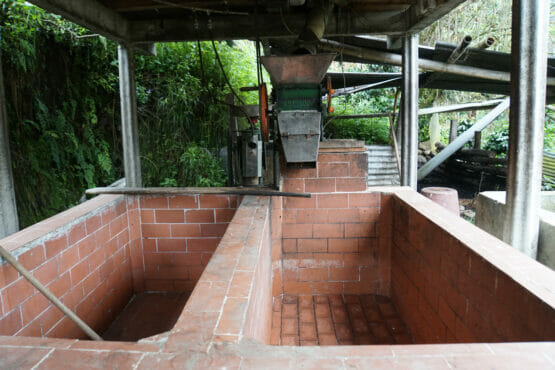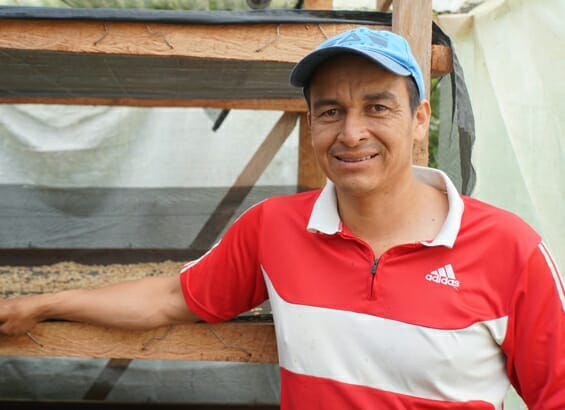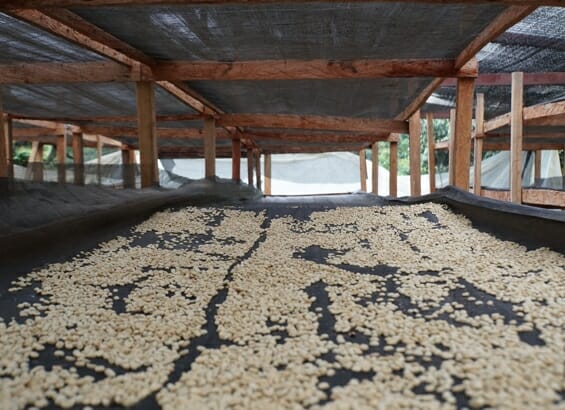Description
The Coffee Tradition of Avocados: A Story from a Colombian Farm.
This microlot of coffee was produced by Luis Ernesto and Cenaida Nieto on their 6-hectare farm, "Los Aguacates," located near the small community of China Alta, in the municipality of Ibagué, in the Colombian state of Tolima.
The Los Aguacates farm is located at an impressive altitude of 1,850 meters above sea level, in the steep and rugged hills surrounding the city of Ibagué, the capital of Tolima. The China Alta region gets its name from the La China River, a small and beautiful river that winds through the mountains and eventually flows into the Magdalena River, Colombia's main river. "Alta" refers to the highest elevations in the area, where the sweetest and finest coffees are grown and harvested. The farm is located on the steep walls of the La China River valley, which is used as a water source for irrigation and coffee processing.
Luis Ernesto is a third-generation coffee farmer. His father, Don Ernesto Sr., bought Los Aguacates in 2002 and eventually gifted it to his son. Luis Ernesto now manages the farm with his wife, Cenaida, and his oldest son, Jaider. His daughter, Taliana, is twelve years old and dreams of continuing her family's coffee tradition by becoming a barista.
With advice from the National Federation of Coffee Growers (FNC), the family planted the farm primarily with the Castillo variety, which was touted for its hardiness and resistance to coffee leaf rust. However, this variety does not perform well at higher elevations and its cup quality is lower, which prevented them from entering the specialty market. Now, they are in the process of migrating to the Caturra variety, which grows best in the high hills of China Alta and has a sweeter, more refined cup quality. This allows the family to sell their coffee to specialty buyers and maximize the profit they can earn from their land. They have also recently planted 2 hectares with the Geisha variety.
Upper China
Historically, the China Alta region has been known for its cattle ranching, sugarcane cultivation, and fish farming in ponds along the river. Coffee cultivation is relatively new to this area, having only been planted in the last 30–40 years. Most coffee farmers acquired land in this area due to its affordability compared to traditional coffee-growing areas such as Planadas and Chaparral in southern Tolima. For a time, higher elevation areas were considered less fertile due to lower yields compared to lower elevations. However, this region has since been acclaimed for the high cup quality, sweetness, and complexity of the coffees produced here.
Most farms in the China Alta region are planted with the Caturra variety, which was the most popular variety during the 1970s and 1980s when the farms were established. Coffee in China Alta is grown using traditional techniques; fertilization occurs about three times a year, usually after hand weeding, and pesticides are rarely used. Coffee is selectively harvested by hand, with most of the labor provided by the farmers and their families.
Tolima
Historically, coffee from the department of Tolima has been difficult to access due to the region's isolation and instability. For many years, this part of Colombia was under the control of the notorious Colombian rebel group, the FARC, and as a result, was unsafe and violent. However, since 2012, safe access to this region has been possible thanks to peace talks between the Colombian government and the rebels. As a result, some impressive coffees from small producers have become accessible to the international market.
The word "Tolima" comes from the local indigenous language and means "river of snow or clouds." The region sits atop the Cordillera Central, amidst three mountain ranges that provide a range of microclimates well suited to the production of high-quality coffee. Coffee is the region's main agricultural activity, followed by beans and livestock.
The best-known regions in Tolima for specialty coffees are Planadas and Chaparral in the south. This coffee comes from the areas near Ibagué, which is further north in the state. The city is also known as the "City of the Fan" because when viewed from the sky, the rivers that flow down from the mountains divide the rice and cotton crops, resembling a beautiful handmade folding fan.
Harvesting and artisanal processing process at the Los Aguacates farm in China Alta.
This lot was selectively hand-harvested, with most of the labor provided by Luis Ernesto and his family. During the peak of the harvest, the family hires local workers to help harvest the coffee cherries. They are paid by the kilogram or by the day when there isn't much coffee to harvest. Luis Ernesto prefers to work with the same local pickers every year, as he has taught them to select only the ripest cherries for processing. The cherries were then processed using the washed method at the Los Aguacates microbeneficio (wet mill). The coffee was depulped by hand and then placed in a fermentation tank. Due to the cooler climate of China Alta, producers like Luis Ernesto tend to ferment coffees for longer than usual and often blend harvests from several days into a 2- to 3-day period. Every day, freshly picked cherries are pulped and added to the blend, which lowers the pH level and, along with cooler temperatures, allows for a prolonged fermentation process. This fermentation process contributes to a vibrant, winey acidity in the coffee's cup profile.

After fermentation, the coffee was washed with clean water from the La China River and then carefully dried (for 10 to 18 days) on raised beds in a greenhouse, which protects the coffee from rain and has adjustable walls to aid in airflow and temperature control to ensure the coffee dries slowly and evenly.
Once dried, the coffee was sent to Pergamino's (the exporter's) warehouse, where it was cupped and graded, then rested in parchment until ready for export. These careful, artisanal harvesting and processing practices ensure that only the highest-quality coffee beans are selected and exported, delivering a unique and complex flavor in the cup.




